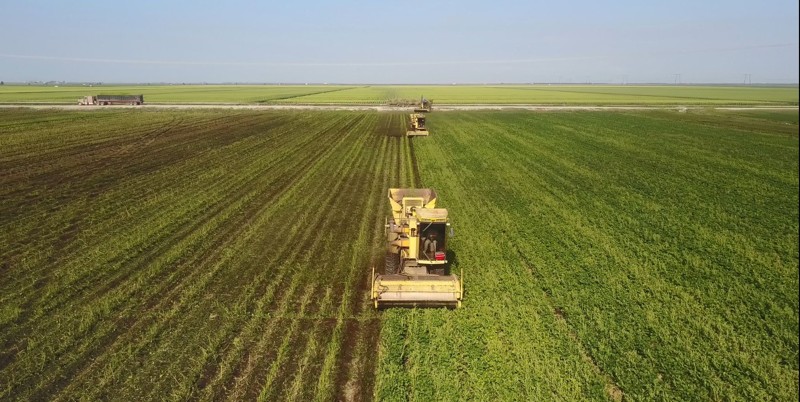Jan 25, 2022David Lobell awarded 2022 NAS Prize in Food & Agriculture Sciences
Climate change requires major adjustments in agricultural techniques that allow traditional crops to grow under extreme conditions. However, developing new techniques requires an intricate understanding of how shifts in climate affect crop growth.
David Lobell of Stanford University is identifying these techniques and methodologies to address climate change and food security. For this work, the National Academy of Sciences (NAS) is awarding Lobell the 2022 NAS Prize in Food & Agriculture Sciences for his groundbreaking research on the effects of climate variability and change on global crop productivity.
The NAS Prize, endowed by the Foundation for Food & Agriculture Research (FFAR) and the Bill & Melinda Gates Foundation, is awarded annually to a mid-career scientist at a U.S. institution making an extraordinary contribution to agriculture or to the understanding of the biology of a species fundamentally important to agriculture or food production. The prize is presented with a medal and $100,000 cash award.
“Climate change is radically altering how we live, farm and eat,” said FFAR Executive Director Sally Rockey. “Dr. Lobell’s pathbreaking research is helping us address present and prepare for future agricultural and nutritional challenges by filling the missing pieces in our knowledge of the interactions of climate and agriculture. FFAR congratulates him on this much-deserved award.”
Lobell’s innovative use of remote sensing, statistics, ecosystem modeling and agronomy addresses challenges at the nexus of agriculture, food security and the environment. His work shows that investments in agriculture are one of the most cost-effective ways of limiting climate change.
The Lobell Lab at Stanford has accomplished numerous recent breakthroughs, demonstrating that in many agricultural systems, climate change is already affecting productivity. His team used new empirical approaches to show the importance of heat to major agricultural crops, including the impact of short periods of very high temperatures. By developing improved methods to use satellite data to measure agricultural productivity and management practices, he furthered scientific understanding of how specific interventions can improve productivity.
Lobell further identified unique adaptations and investments for improving world food security. He continues to chart the path toward the future of interpreting satellite imagery to predict key sustainable development outcomes and improve our understanding of agriculture’s interface with the environment.
“I am really honored to join an incredible list of past recipients, who have done so much to advance agricultural science,” said Lobell. “It is gratifying to see the empirical approaches that I’ve worked on recognized as valuable by my peers. In my early years, it was pretty hard to convince people that anything not based on traditional experimentation could add value.”
Lobell’s work represents a forward leap that is overcoming many of the hurdles hindering climate and agriculture sciences. His results have practical, immediate implications for farmers worldwide. The NAS Award is both an acknowledgment of his accomplishments and a vote of confidence in his future scientific endeavors.
The Foundation for Food & Agriculture Research (FFAR) builds public-private partnerships to fund bold research addressing big food and agriculture challenges. FFAR was established in the 2014 Farm Bill to increase public agriculture research investments, fill knowledge gaps and complement USDA’s research agenda. FFAR’s model matches federal funding from Congress with private funding, delivering a powerful return on taxpayer investment. Through collaboration and partnerships, FFAR advances actionable science benefiting farmers, consumers and the environment.















